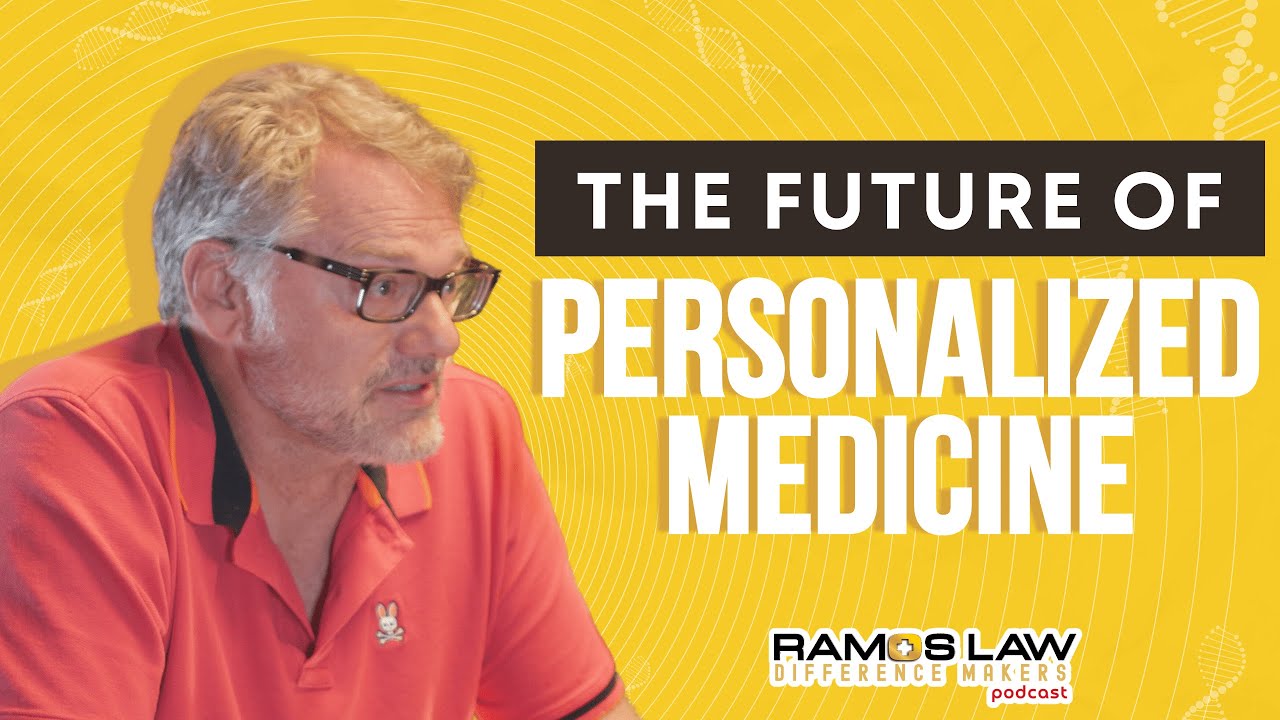Vaccine Injury Lawyers
Expert guidance in understanding the National Vaccine Injury Compensation Program (VICP).
Talk With Us TodayInformation on the National Vaccine Injury Compensation Program (VICP)
In the early 1980s, Congress created the National Vaccine Injury Compensation Program (VICP) for individuals and families of individuals injured by the DTP (diphtheria, tetanus, pertussis) vaccine. At the time, the serious adverse effects reported resulted in many lawsuits against vaccine companies, doctors, and nurses. This program sought to eliminate the potential financial liability and stands as a “no-fault” compensation system for viable vaccine injury claims. The U.S. government found this to ensure a stable market supply of vaccines, maintain public health by means of vaccinations, and serve as a cost-effective arbitration for those injured by VICP-covered vaccines. The fund currently has roughly 4 billion dollars and has paid out over 4 billion dollars since its inception.
For those who believe they have suffered a vaccine-related injury, including tinnitus, it is important to contact the experts in the Medical Science Division at Ramos Law to learn more about the process for seeking compensation.
How To Prepare a Vaccine Injury Claim
Although an attorney is not required to file a vaccine injury case with the VICP, strict adherence to the process is required. Disregarding the vaccine court rules and formalities can result in the dismissal of an otherwise viable case. We at the Medical Science Division at Ramos Law carefully review and follow the vaccine court’s rules and guidelines and evaluate a prospective vaccine injury claim by evaluating (1) whether the claim is timely, (2) what the medical records show, (3) whether HHS will contest entitlement, and (4) the nature and extent of damages.
The vaccine injury team in the Medical Science Division of Ramos Law gathers the following information to submit in a petition:
- Who was injured by the vaccine
- Which vaccine caused the injury
- when the vaccine was given
- The city and state or country where the vaccine was given
- The type of injury
- When the first symptom of the injury appeared
- How long the effects of the injury lasted
Your claim should also include your medical records and/or other appropriate documents.
Why Do You Need a Vaccine Lawyer?
The practice of immunization dates back hundreds of years, and through decades of research and development, vaccines have saved lives by preventing diseases and illnesses. As with any medicine, vaccines can create unintended consequences; however, most people who get vaccines have no serious problems.
In very rare cases, a vaccine can cause a serious, debilitating reaction, such as a severe allergic reaction or damage to the nerves and muscles associated with the injection site. Vaccine manufacturers and administrators are not legally liable for injuries; however, to provide fair and efficient compensation to those who have developed an adverse reaction or injury, petitions can be filed with the VICP. Even in cases where such a finding is not definitively made, petitioners may receive some compensation through a settlement with the VICP.
To start the process, a claim must be filed by or on the behalf of the individual thought to be injured by a vaccine covered by the VICP. A claim is started by filing a legal document called a petition that is prepared by you or your lawyer to request compensation under the VICP. Anyone who files a claim is called a petitioner.
How Our Vaccine Lawyers Can Help You
The attorneys in the Medical Sciences Division of Ramos Law have been fighting for the rights of injury victims for nearly a quarter-century and they stand ready to fight for you. Emergency medical physician and attorney Dr. Joseph Ramos and the expert vaccine injury team at our personal injury law firm in Colorado and Arizona are dedicated to helping victims receive the compensation they deserve. We have the skills and experience to help you navigate the complex claims process.
What Vaccines are Covered by the VICP?
The COVID-19 vaccine is NOT currently included in the Vaccine Injury Compensation Program; however, it is being considered to be added as a covered vaccine. If and when COVID vaccine injuries are covered by the VICP, our vaccine injury lawyers can review your claim to determine if you are eligible for compensation.
The VICP covers most vaccines routinely given in the U.S. For a vaccine to be covered, the Centers for Disease Control and Prevention (CDC) must recommend the category of vaccine for routine administration to children or pregnant women, and it must be subject to an excise tax by federal law.
The injuries and/or conditions associated with some covered vaccines are listed on this Vaccine Injury Table. If you experienced symptoms of these injuries and/or conditions within the specified time periods and the injury meets the definition included in the table, it is presumed that the vaccine caused the injury or condition (unless another cause is proven). If your injury and/or condition is not on the table, or if your injury and/or condition does not meet the table requirements, evidence such as expert witness testimony, medical records, or medical opinion must be given to prove that the vaccine caused the injury and/or condition.
The Vaccine Injury Claims Process
The National Vaccine Injury Compensation Program is a no-fault alternative to the traditional legal system for resolving vaccine injury claims involving short, informal hearings. Vaccine reaction/injury claims must be filed in the U.S. Court of Federal Claims in Washington DC. In simple terms, this means that instead of going through the traditional courtroom process for hearing these types of cases, the claims are primarily made through a forms-submission process that is then compared to the information on the Vaccine Injury Table and/or reviewed by special governmental medical and legal experts.
Here is the process of filing a vaccine injury claim with the VICP:
- A petition is filed with the U.S. Court of Federal Claims.
- The U.S. Department of Health and Human Services (HHS) medical staff reviews the petition, determines if it meets the medical criteria for compensation, and makes a preliminary recommendation.
- The U.S. Department of Justice (DOJ) develops a report that includes the medical recommendation and legal analysis and submits it to the Court.
- The report is presented to a court-appointed Special Master. Typically, after holding a hearing where both parties can present evidence, the Special Master decides whether the petitioner should be compensated, as well as the amount and type of compensation.
- The Court orders the HHS to award compensation. Even if the petition is dismissed, if certain requirements are met, the Court may order the HHS to pay attorneys’ fees and costs.
- The Special Master’s decision may be appealed and petitioners who reject the decision of the court (or withdraw their petitions within certain timelines) may file a claim in civil court against the vaccine company and/or the health care provider who administered the vaccine.
You can trust our vaccine lawyers’ wealth of knowledge to guide you through the VICP claims process.
Vaccines rarely cause injury, but if you have suffered a reaction/injury after getting one of the vaccines listed above, the experienced team of vaccine lawyers at Ramos Law is ready to guide you through the legal process to help get you the compensation you deserve.
Fill out our form as soon as possible so our personal injury attorneys in Colorado and Arizona can provide a no-cost evaluation of your claim and determine if you are eligible for the VICP.
Unlocking Insights through Advanced Medical Science
At the Medical Sciences Division, we harness the power of state-of-the-art technology, such as whole genome sequencing, to not only support our injured clients on their path to recovery but also to reinforce their vaccine injury compensation claims in court. It’s imperative to note that severe vaccine injuries, like strokes, are uncommon. However, emerging data indicates that genetics can be a significant factor.
Kelly Sue’s experience is a testament to our commitment. As one of the pioneering vaccine survivors we assisted, gene sequencing unveiled the rare genetic markers that contributed to her vaccine-induced injury.
Hear Kelly Sue’s Journey
Dive into Kelly Sue’s personal narrative about the unexpected aftermath of her COVID-19 vaccination.
“I spent 31 days in the hospital. I had everything from blindness in my eyes because of the occipital strokes. I had inability to use my mouth. I couldn’t talk for a long time.”
“When I first went to the urologist that I was assigned he was very clear that it was the vaccine. He said we’re seeing so much of this and then when doctors started getting fired, let go, there was no discussion about the vaccine anymore…My life is not the same at all, not even close.”
– Kelly Sue, who describes herself as a survivor of the vaccine
In The News
Vaccine Injury Claim Frequently Asked Questions
Any individual, of any age, who received a covered vaccine in the United States and associated territories/military bases and can establish that they were injured as a result, may file a petition. Parents, legal guardians, and legal representatives can file on behalf of children, disabled adults, and individuals who are deceased.
After demonstrating entitlement to compensation, the petitioner must prove damages. The VICP allows four categories of damages: previous medical expenses, expected future medical expenses, lost earnings, and pain and suffering. The VICP covers only out-of-pocket medical expenses, which means that hospitals and health insurance providers are not entitled to any portion of recovery. There is no cap on anticipated future medical expenses, and depending on the injury, this may comprise the bulk of a large award.
Petitions must be filed within 3 years after the first symptom of the alleged vaccine injury, or within 2 years of the death and 4 years after the first symptom of the alleged vaccine injury that resulted in death.
Petitioners pay no attorney fees; however, there is a $402 filing fee. Compensation awarded by the VICP includes attorneys’ fees and costs, which means you do not pay our attorneys anything! When the court issues its VICP payment, past data indicate that 86% of that payment goes directly to the petitioner, with the remainder consumed by transaction costs. This compares favorably to auto collision cases, in which transaction costs are closer to 50%.
If the medical records suggest eligibility for recovery under the VICP, there is likely a reasonable basis to file the claim. Once you electronically file the petition and supporting documents, a physician at the Health Division of Vaccine Injury Compensation will review the submission. If the physician agrees that the evidence meets the standard for compensation, the DOJ staff attorney representing HHS will likely concede to the entitlement issue in HHS’s “respondent’s report.” This process generally takes 90 days. The average time from filing to payment is 2-3 years.
Data from the VICP indicate that 7 out of 10 claims settle and require minimal special master involvement. Overall, one injured person is compensated by the VICP out of one million vaccinations (before COVID-19 vaccinations). The VICP has seen over 20,000 claims since its inception. Over 6,500 claims succeeded, receiving a collective $4.3 billion in payments, which is roughly $660,000 per case. The vaccines most often at issue have been the flu vaccine (4,057 claims out of 1.5 billion doses), the Tdap vaccine (514 claims out of 250 million doses), and the HPV vaccine (326 claims out of 111 million doses), with all remaining vaccines seeing fewer than 300 claims over the past 30 years.
- Diphtheria (DTP, DTaP, Tdap, DT, Td, TT)
- Haemophilus influenza type b polysaccharide conjugate vaccines (Hib)
- Hepatitis A (HAV)
- Hepatitis B (HBV)
- Human papillomavirus (HPV)
- Seasonal influenza (Flu)
- Measles (MMR, MR, M)
- Mumps (MMR, MR, M)
- Meningococcal (MCV4, MPSV4, MenB-FHbp, MenB-4C)
- Pertussis (DTP, DTaP, Tdap)
- Pneumococcal conjugate (PCV)
- Polio (OPV or IPV)
- Rotavirus (RV)
- Rubella (MMR, MR, R)
- Tetanus (DTaP, Tdap, DTP-Hib, DT, Td, TT)
- Varicella (VAR)
- Acute Disseminated Encephalomyelitis
- Brachial Neuritis
- Chronic Inflammatory Demyelinating Polyneuropathy
- Dermatomyositis
- Encephalitis
- Guillain-Barre Syndrome
- Idiopathic Thrombocytopenic Purpura
- Intussusception
- Neuromyelitis Optica
- Shoulder Injury Resulting from Vaccine Administration (SIRVA)
- Transverse Myelitis
- Anaphylaxis
- Arthritis
- Autoimmune Hepatitis
- Complex Regional Pain Syndrome
- Connective Tissue Disorders
- Death
- Encephalopathy or Encephalitis
- Kawasaki Disease
- Lupus
- Multiple Sclerosis
- Opsoclonus-Myoclonus Syndrome
- Polyarteritis Nodosa (PAN)
- Reflexive Sympathetic Disorder
- Seizures
- Thrombocytopenic Purpura
- Tourette’s Syndrome
- Trigeminal Neuralgia
- Vasovagal Syncope
- Wegener’s Granulomatosis
Contact Our Vaccine Law Attorneys
Free Case Evaluation
Related Posts

Revolutionizing Healthcare with Personalized Medicine & Genetics | Ep. 180
This video is about the future of personalized medicine and health, and how genetics can be used to assess an individual’s risk for developing certain

Ep. 149 | What To Do If You Have An Adverse Effect To A Vaccine
Dr. Ramos and Dr. Cooper discuss in this episode vaccine injury cases what symptoms to look for if you feel you have had an adverse

Vaccine-induced blood clots may be the result of genetics, study finds
The rare blood clot side-effect associated with some COVID-19 vaccines could be the result of genetics, new research has found, paving the way for a